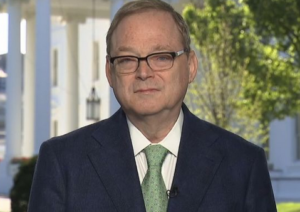As President Trump's tariffs on imported cars loom, the town of Solihull in England is grappling with uncertainty. Jaguar Land Rover's decision to pause shipments to the U.S. has left many local workers feeling anxious and concerned about their livelihoods.
Tariff Anxiety: Solihull’s Automotive Workers on Edge Amid Trump’s Import Levies

Tariff Anxiety: Solihull’s Automotive Workers on Edge Amid Trump’s Import Levies
Residents of Solihull express concerns over the 25% tariff placed on imported vehicles, affecting the Jaguar Land Rover factory that is vital to the local economy.
In the heart of England’s West Midlands lies Solihull, home to the prestigious Jaguar Land Rover (JLR) factory, a pillar of the local economy and employer of 9,000 individuals. Yet, a 25% tariff recently instituted by President Trump on imported vehicles has cast a shadow over this automotive hub, prompting a wave of anxiety among residents.
The factory, sprawling over 300 acres, is a crucial contributor to the region, with JLR exporting around a fifth of its vehicles to the U.S. This significant reliance on American markets has put something of a stranglehold on the community following the application of the tariff, which some experts warn could lead to increased prices and decreased demand for automobiles.
Local resident Ben Slade articulated the prevailing mood, remarking on the interconnectedness of his community. His brother-in-law, employed at JLR, is now facing uncertainty as shipments have been paused for the month due to fears over the tariff’s impact. “It's a very nervy time,” Slade noted, reflecting the communal apprehension that permeates the town. "People are making jokes about it, but underneath, there’s a lot of worry.”
As Solihull’s town center buzzes with the everyday life of roughly 218,000 residents, the anxiety linked to JLR’s shipment halt is palpable. Conversations in shops and cafes are tinged with an undercurrent of concern for local jobs, as few can predict whether the tariffs will lead to long-term ramifications on employment or further economic downturn.
The local contractors who support JLR are equally affected, with many fearing that a slowdown in vehicle exports could lead to a ripple effect across the workforce. This developing situation highlights the complexities of global trade dynamics and their implications on local economies.
In summary, as the town of Solihull navigates the uncertainty introduced by Trump's tariffs, questions hang in the air about the future of its beloved automotive industry. The worries of workers and their families add a deeply personal dimension to what is fundamentally a global economic issue.
The factory, sprawling over 300 acres, is a crucial contributor to the region, with JLR exporting around a fifth of its vehicles to the U.S. This significant reliance on American markets has put something of a stranglehold on the community following the application of the tariff, which some experts warn could lead to increased prices and decreased demand for automobiles.
Local resident Ben Slade articulated the prevailing mood, remarking on the interconnectedness of his community. His brother-in-law, employed at JLR, is now facing uncertainty as shipments have been paused for the month due to fears over the tariff’s impact. “It's a very nervy time,” Slade noted, reflecting the communal apprehension that permeates the town. "People are making jokes about it, but underneath, there’s a lot of worry.”
As Solihull’s town center buzzes with the everyday life of roughly 218,000 residents, the anxiety linked to JLR’s shipment halt is palpable. Conversations in shops and cafes are tinged with an undercurrent of concern for local jobs, as few can predict whether the tariffs will lead to long-term ramifications on employment or further economic downturn.
The local contractors who support JLR are equally affected, with many fearing that a slowdown in vehicle exports could lead to a ripple effect across the workforce. This developing situation highlights the complexities of global trade dynamics and their implications on local economies.
In summary, as the town of Solihull navigates the uncertainty introduced by Trump's tariffs, questions hang in the air about the future of its beloved automotive industry. The worries of workers and their families add a deeply personal dimension to what is fundamentally a global economic issue.























